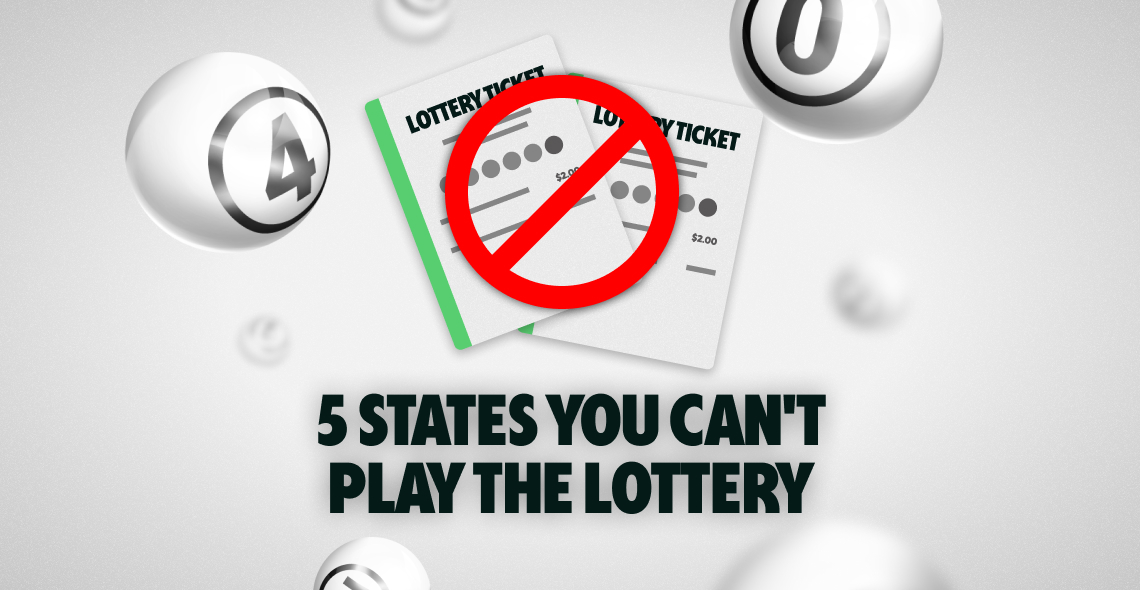Exploring the States Without Lotteries: A Comprehensive Overview
Written by Jackpot Staff
January 15, 2025

Lotteries are a popular form of gambling in the United States, with 45 states, the District of Columbia, Puerto Rico, and the U.S. Virgin Islands participating in this widespread activity. However, there are five states that stand out for their absence of state-run lotteries. These states - Alabama, Alaska, Hawaii, Nevada, and Utah - each have unique reasons for not participating in this form of gaming. Understanding these reasons provides insight into the diverse cultural, economic, and political landscapes across the nation.
Alabama: A State Steeped in Religious Tradition
Alabama is one of the states that does not have a state lottery, primarily due to strong religious objections. The state's conservative Christian population has historically been opposed to gambling, viewing it as morally wrong. Despite periodic efforts to legalize lotteries, these initiatives have consistently been met with resistance and have not been successful. The religious stance against gambling is deeply ingrained in Alabama's culture and politics, making it unlikely that the state will introduce a lottery in the near future. This resistance highlights the powerful influence of religious beliefs on legislative decisions in Alabama, where moral considerations often outweigh potential economic benefits.
Alaska: Oil Wealth and Budgetary Challenges
Alaska is another state without a state lottery, although this status may change in the future. Historically, Alaska's significant tax revenue from the oil industry has reduced the need for additional revenue streams from lottery games. However, with the state facing a substantial budget deficit, there have been recent proposals to establish an Alaska Lottery Corporation. In 2020, Governor Mike Dunleavy and House Majority Leader Steve Thompson introduced different plans for a state lottery, aiming to raise funds for various public services such as education, seniors, homelessness, and women’s shelters. These proposals include both draw-style lotteries and potentially scratch-offs and video lotto games, though they are still under debate and face opposition from existing gaming businesses.
Hawaii: Protecting the Pristine Tourism Industry
Hawaii does not have a state lottery, and this decision is partly driven by concerns about the potential impact on the state's lucrative tourism industry. Hawaii's economy is heavily reliant on tourism, and there is a fear that introducing a lottery could encourage gambling and potentially harm the state's image as a family-friendly and pristine tourist destination. Additionally, there have been discussions about legalizing other forms of gambling, such as casino gaming, to generate more tax revenue, but these proposals have not yet come to fruition. The state's cautious approach reflects a desire to maintain its unique appeal to tourists while balancing economic needs.
Nevada: Casinos Over Lotteries
Nevada, known for its robust gambling industry, is surprisingly one of the states without a state lottery. The primary reason for this is the strong opposition from the local casino industry. Casinos in Nevada fear that a state lottery would compete for their revenue, potentially reducing their profits. This concern has been a significant barrier to the introduction of a state lottery, despite the state's otherwise permissive attitude towards gambling. The powerful casino lobby in Nevada plays a crucial role in maintaining the status quo, ensuring that the state's gambling landscape remains dominated by casinos.
Utah: Constitutional Ban on Gambling
Utah's absence of a state lottery is due to a constitutional ban on all forms of gambling. The state's constitution explicitly prohibits gambling, reflecting the strong moral and religious sentiments of its population. This ban is enforced strictly, and any attempts to introduce gambling, including lotteries, would require a constitutional amendment, which is a challenging and unlikely process. Utah's stance on gambling is a testament to the influence of its predominantly Mormon population, which upholds strict ethical standards that shape state policies.
The Impact on Residents and Recent Developments
Residents of states without lottery games face certain limitations if they wish to participate in national games like Powerball and Mega Millions. They must travel to neighboring states where these lottery games are available. There are no residency or citizenship requirements to play in these national games, but the inconvenience of having to seek out tickets elsewhere can be a deterrent for some. This situation underscores the broader implications of state lottery policies on individual freedoms and consumer choices.
There have been recent legislative efforts in some of these states to reconsider their stance on lottery games. For example, Alaska's proposed establishment of a lottery corporation is a significant development, driven by the need to address the state's budget deficit. In Mississippi, which was previously one of the states without a lottery, legislation was passed in 2018 to create a state lottery. Sales of lottery tickets, including Mega Millions and Powerball, began in 2019 and 2020, respectively, marking a change in policy for the state. These developments suggest a potential shift in attitudes towards lotteries, as economic pressures and changing public opinions influence state decisions.
In Hawaii, while there have been no successful implementations of a lottery, there have been ongoing discussions about legalizing other forms of gambling to generate revenue. These discussions include proposals for casino gaming, which, if implemented, could pave the way for future considerations of a state lottery. The evolving dialogue in Hawaii reflects a broader trend of states reevaluating their gambling policies in response to economic needs and societal changes.
The absence of state lotteries in Alabama, Alaska, Hawaii, Nevada, and Utah is rooted in a combination of religious, economic, and industry-specific factors. As economic conditions and public attitudes evolve, some of these states may reconsider their policies, potentially leading to changes in the landscape of lotteries in the United States. Understanding these dynamics provides valuable insights into the complex factors that shape state policies and the diverse perspectives that influence decision-making across the nation.
Check which states allow you to order lottery and scratch tickets online.

